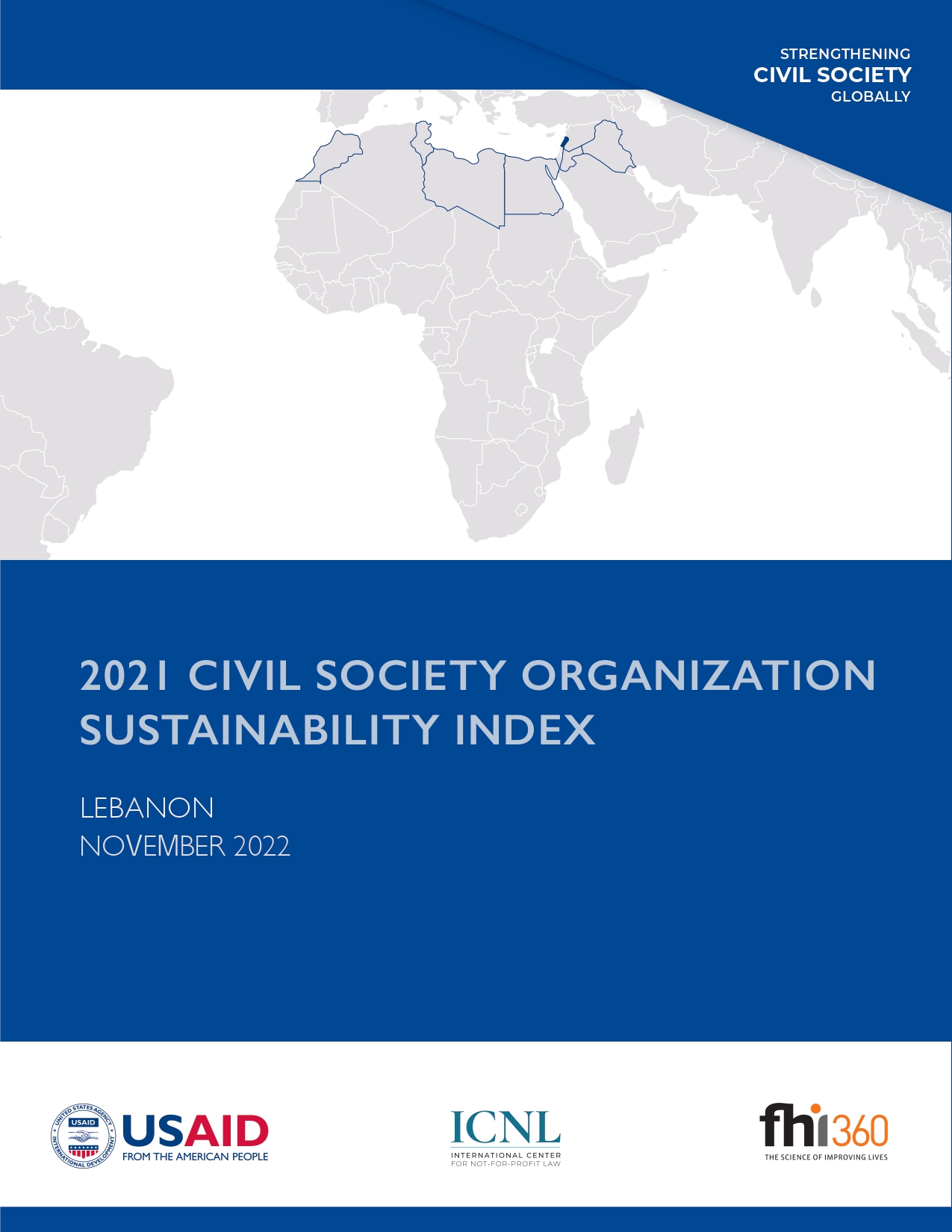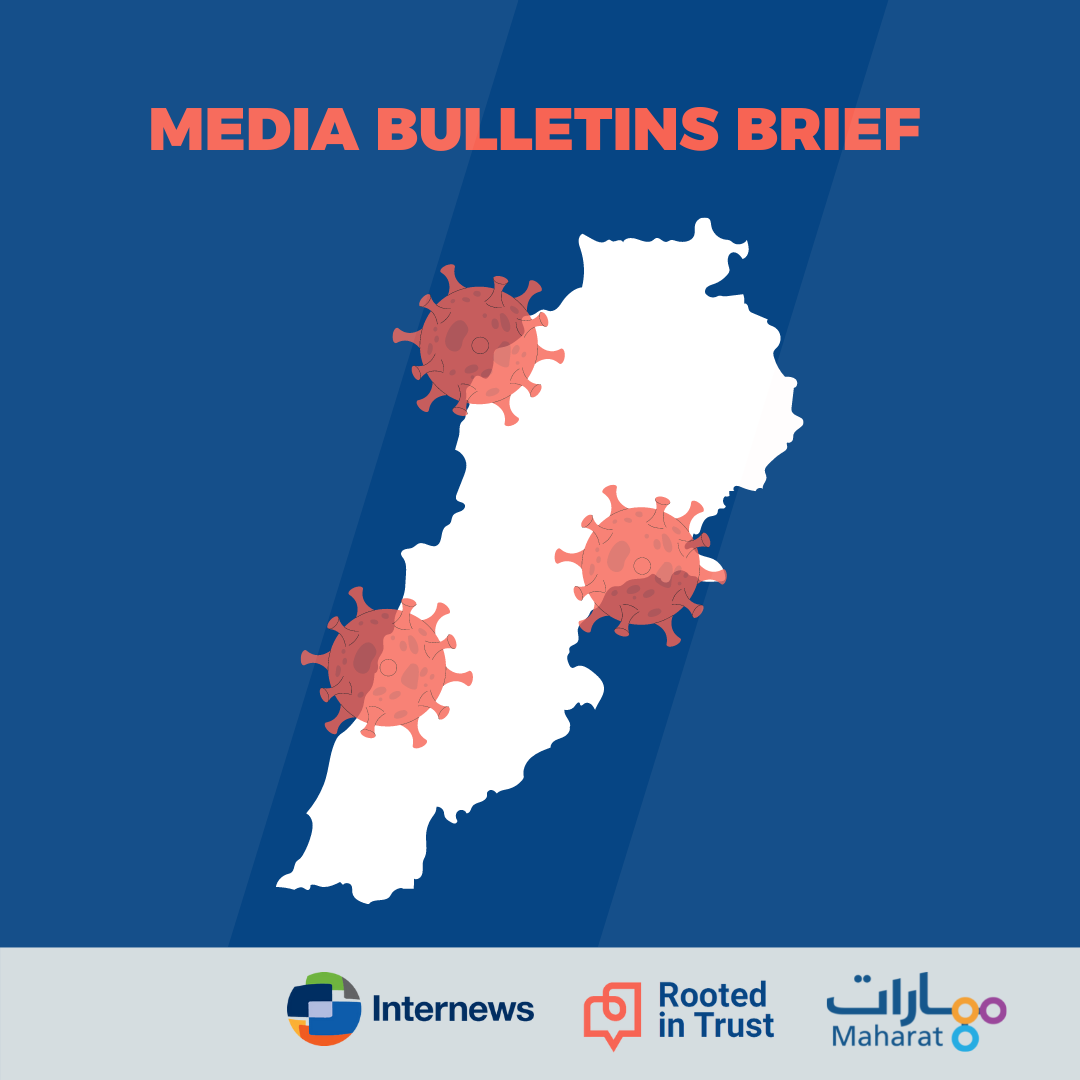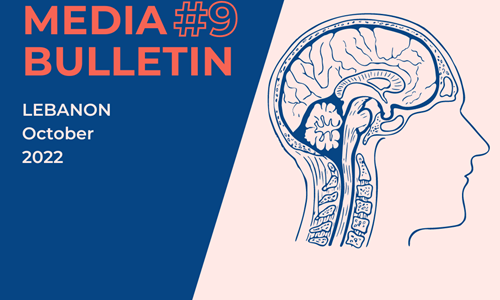
CSOs Still Resilient Despite Challenges
Lebanon grappled with multiple challenges in 2021, including the continuation of an unprecedented economic and financial crisis, the disastrous impact of the massive August 2020 explosion at the Port of Beirut, political deadlock, and shrinking public space. These crises were compounded by the COVID-19 pandemic. Beginning in mid-January 2021, in response to a dramatic spike in cases, Lebanon imposed a 24-hour curfew, one of the strictest lockdowns in the world. The restrictions began to generally ease on February 8 and the 24-hour curfew was lifted on February 22, allowing some businesses providing essential services to resume operations; on March 22, restrictions were completely lifted.
As policymakers continued to fail to provide an adequate response to the economic crisis, Lebanon’s real gross domestic product (GDP) declined by an estimated 10.5 percent in 2021, following a 21.4 percent contraction in 2020. This economic decline was the worst among 193 countries analyzed by the World Bank over the same period of time. According to the United Nations Office for the Coordination of Humanitarian Affairs (UN OCHA), in 2021, 78 percent of the Lebanese population (excluding refugees), or three million people, were estimated to be living below the poverty line, and extreme poverty reached 36 percent.
Lebanon also continues to host a large refugee population. The UN High Commissioner for Refugees (UNHCR) estimated that there were approximately 1.5 million Syrian refugees and 15,000 refugees of other nationalities in Lebanon in 2021. Almost nine in ten displaced Syrian households were living in extreme poverty, according to The Vulnerability Assessment of Syrian Refugees in Lebanon.
Lebanon faced ongoing security challenges in 2021. In February, the body of Lukman Slim, a prominent Shia writer and civil society activist, was discovered in southern Lebanon. Though the investigation is unresolved, an envoy from the European Union (EU) considered the case an assassination and Lukman’s family blamed Hezbollah, reporting that he had received death threats from the group in late 2019 due to his vocal criticism.
In October, violent clashes erupted in the Tayouneh neighborhood of Beirut in the midst of political demonstrations. Calling for the removal of the judge leading the Beirut port explosion investigation, hundreds of Hezbollah supporters were marching toward the Palace of Justice when shots were fired from nearby rooftops. The ensuing confrontation left seven people dead and at least thirty-two others injured.
No one has been held responsible for the deadly explosion in Beirut’s port on August 4, 2020, which killed at least 219 people and destroyed half of the city. In July, the National Human Rights Commission formally recognized that the official state response showed failure and neglect to protect the rights of citizens without discrimination, including their rights to life, housing, health, food, and education. In December, two members of parliament filed complaints against the leading judge, prompting the fourth suspension of the investigation in 2021; the case was ongoing at the end of the year. This continuing political inertia has aggravated the blast’s largely unresolved impact on vital infrastructure in Beirut, including the port, hospitals, and businesses, compounded by the country’s economic collapse and electricity shortages. Much remains to be done in the reconstruction of Beirut’s damaged infrastructure.
Parliamentary elections were scheduled for May 2022 but political stagnation and the lack of an approved national budget hampered administrative and logistical preparations. This, combined with the ongoing lack of trust in public administration in the country, prompted CSOs working on electoral reforms to form a coalition in August 2021 demanding timely, fair, and inclusive elections. In response to this advocacy and international pressure, parliament adopted a reform of the applicable electoral law to amend legal deadlines in order to conduct the elections on time.
In spite of the significant challenges facing Lebanon in 2021, CSOs showed remarkable resilience, offsetting what otherwise might have been disastrous circumstances. The overall sustainability of the CSO sector in Lebanon deteriorated slightly in 2021, with slight deteriorations in four dimensions while the remaining three remained unchanged overall. Shrinking civic space spurred deterioration in the legal environment, while smear campaigns worsened CSOs’ public image. CSO advocacy initiatives also deteriorated in 2021 due to general stagnation in policymaking and CSOs’ prioritization of meeting basic needs rather than advocacy work. Declining collaboration caused a slight deterioration in the infrastructure supporting the CSO sector. Though the need continues to outpace available resources, financial viability of CSOs remained unchanged overall in 2021 as they better adapted to the changing banking system. Organizational capacity and service provision also remained unchanged, with CSOs continuing to fill the role of the Lebanese state in providing basic services to the public.
The CSO sector in Lebanon continued to respond quickly to community demands in 2021 and has taken on increasing responsibility in providing and ensuring the public’s basic needs. Informal social and political movements and collective civic actions protesting the government also continued to be an important part of the civil society landscape in 2021.
Check the full report:
2021 Civil Society Organization Sustainability Index, Lebanon Report





